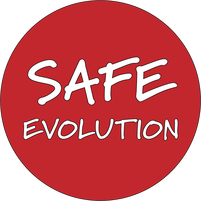Joint Meetings (with SSE and SSB)
The joint meeting website is at http://www.evolutionmeetings.org/
FUTURE JOINT MEETINGS
- 2026, Cleveland, OH (ASN/SSB/SSE), June 20–24
- 2027, San Juan, PR (ASN/SSB/SSE), June 25–29
- 2028, Tacoma, WA (SSE/SSB), June 24–28
- 2029, Ghent, Belgium (ESEB/SSB/SSE)
Meeting Code of Conduct
The American Society of Naturalists (ASN) prohibits all forms of discrimination, harassment, and retaliation at Society meetings. Behavior that undermines the integrity of intellectual discourse and interactions will not be tolerated at Society meetings. See the SAFE EVOLUTION section below and the webpage at https://www.evolutionmeetings.org/safe-evolution.html
Social Media Policy
The ASN supports the communication and discussion of science. Information presented at the Meetings (in poster or oral format) may be reported (and discussed) by attendees and science writers via blogs, Twitter, or other formats. However, we require that this be done respectfully and without direct reproduction of visual materials (e.g., no posting photos of slides or posters) unless permission is obtained from the presenter or they have already made this information freely available in an open-access forum.
A presenter may request that information in the presentation/poster not be shared but the presenter must provide explicit instructions, such as applying the No Tweeting symbol to every slide or poster that should not be shared.
Graduate Student Travel Grant
The American Society of Naturalists will award $500 each to 15 graduate students to help defray the cost of attending the meetings. Awards will be chosen from a random drawing of all eligible students who identified themselves as ASN members at registration. To be eligible, a student must be a student member of the American Society of Naturalists, must be presenting a paper or poster at the meeting, and must not have received the travel award in the previous year. The treasurer of the ASN will notify the recipients by email.
View Past Meetings
SAFE EVOLUTION
The Council of Evolution Societies (ASN, SSB, SSE) are committed to promoting a safe, inclusive, and professional work environment at the Joint Evolution Meetings and ensuring that all activities are free from discrimination, bias or harassment of any type. The SAFE EVOLUTION program was designed to establish standards of appropriate behaviors, to address work-climate related concerns, and to offer support to members who may feel harassed, threatened or unsafe in any way when participating in Joint Meeting programs. If we all engage, we can make the Joint Evolution Meetings a professional and meaningful experience for everyone. SAFE EVOLUTION makes us part of the solution to a persistent problem in academia.
The field of evolutionary biology is at its best when all of its members are supported by positive, safe, and healthy work environments.
This Code of Conduct Committee’s charge is to develop and oversee implementation of policies and response procedures on professional behavior and integrity. This effort includes a clear confidential channel for reporting inappropriate behavior, society efforts to communicate the impact of inappropriate behavior, and a call to members of all three societies to adopt and disseminate the message that our Joint Meetings are a safe environment for engaging in scientific activities.
TYPES OF INAPPROPRIATE BEHAVIORS
Many different types of inappropriate behaviors, whether written, verbal, or physical, can affect the personal and professional well-being of scientists in the workplace, especially when people misuse their positions of power and influence. Research confirms that these behaviors have highest impact on women and underrepresented demographic groups. In fact, harassment and other inappropriate behaviors in academic environments with low diversity are especially damaging, because the lack of established support networks can lead to feelings of vulnerability and professional isolation.
Safe Evolution means that every Report of Inappropriate Behavior is Taken Very Seriously
- Exclude - to block someone's access to resources or opportunities, make someone feel unwelcome, based on their identity or affiliation with a particular group
- Belittle - to treat someone in a condescending manner or with the assumption of incompetence
- Discriminate
- Bully / Intimidate - to threaten, frighten, humiliate, or intimidate someone with abusive words or actions
- Harass - to use words or actions that are unwanted, unwelcome, demeaning, degrading abusive or offensive, and to persist in such actions despite resistance, protest, or rebuke by the recipient(s) of those actions
- Assault - to make unwelcome physical contact with anyone in any manner, including actual bodily harm and any form of unwanted sexual contact; to threaten bodily harm with an apparent present ability to cause harm
HOW WE CAN ALL CONTRIBUTE TO A SAFER EVOLUTION MEETING
Making society-sponsored meetings safe and welcoming to everyone is an important goal. Improving the climate within our societies and at our meetings cannot be imposed; it is an endeavor that needs the engagement and participation of all our members. As we prepare to adopt new meeting policies and procedures at the Evolution Meetings in Providence, RI, here are some concrete ways that everyone can be engaged and increase awareness of the Safe Evolution goals:
- Know your Policies. By adopting the Conference Policies, including the meeting Code of Conduct and Response Procedures. The three societies have established clear and specific expectations and norms to promote the best meeting climate possible. All three societies are committed to their implementation. All members and attendees are encouraged to familiarize themselves with the policies. The best way to promote a positive change is to be able to identify inappropriate behaviors and know how to respond. Bring these policies to the attention of your colleagues and lab groups.
- What constitutes inappropriate behavior? As norms and expectations change, we expect changes in what IS considered acceptable behavior. Issues of behavior and bias are often difficult to talk about, but the most productive discussions happen when we share common goals. Have an open discussion with your lab group members, your fellow faculty, and your fellow students about our ultimate goals as a society and why safe and inclusive society meetings are important. Be explicit in your discussions about what is or is not appropriate behavior and be open to discussions on difference in opinions.
- Let’s Make This Our Responsibility. Be an active participant in Safe Evolution! Think about ways you can send the message that the best environment for doing science is one that is fair, equitable and welcoming to all participants. There are many ways to promote discussions, engage in diversity-focused activities, and be proactive—make a positive change for our scientists and our science.
For resources and current contact procedures for the Evolution Meetings, see the Safe Evolution webpage:
https://www.evolutionmeetings.org/safe-evolution.html

